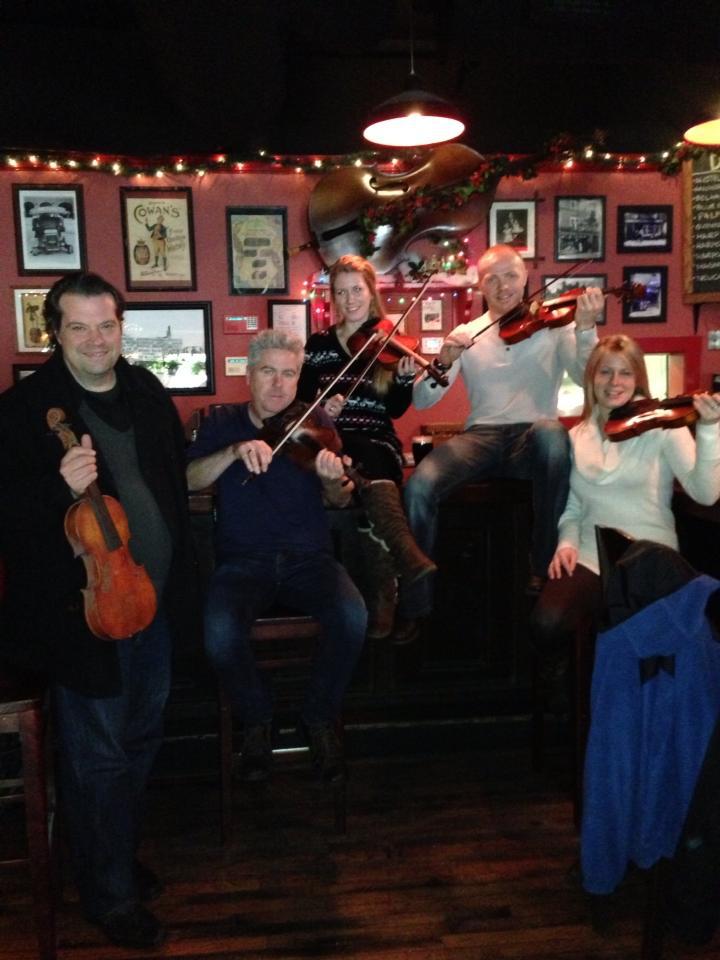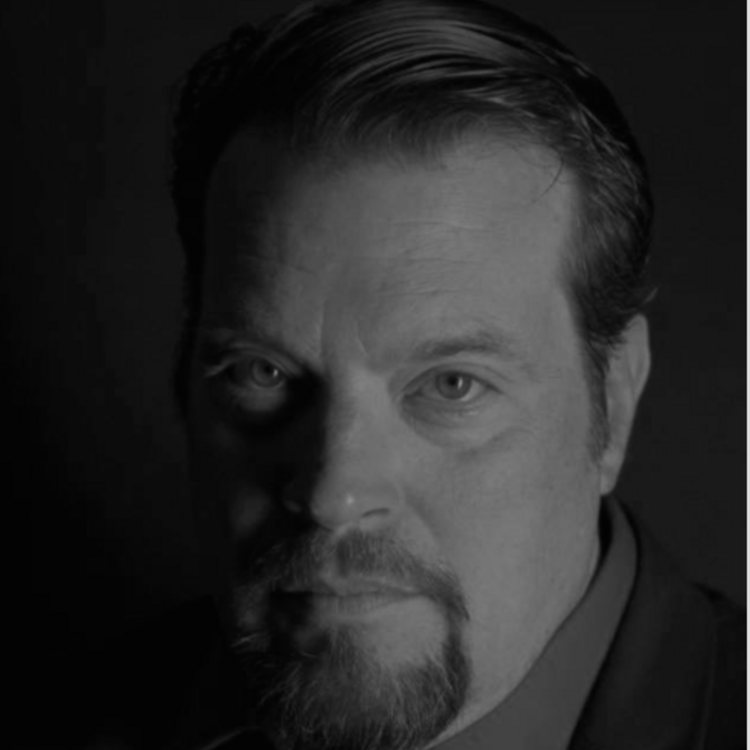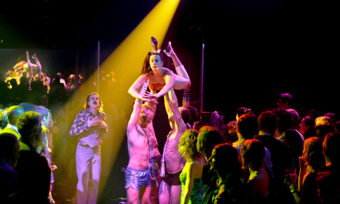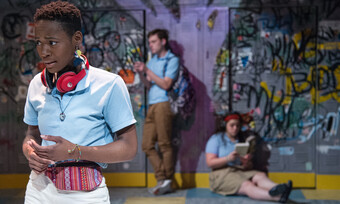Writing For Club Theatre
In 2011 my play, Permanent Designs, was being presented at the American Repertory Theatre’s Club Oberon venue in Harvard Square, Cambridge, a space that was constructed to present Diane Paulus’s hit Donkey Show and other “cutting edge” productions. In an interview I was taken aback when writer, Katy Kelleher, asked me what it was like to write for “Club Theatre.” I told her that it’s all I’d ever done, since the beginning of my playwriting career. Kelleher wrote in coverage for “NBC’s The Feast” (a short-lived online journal); “With a slightly edgy and guerrilla feel, Permanent Designs is a great example of club theater…”
Is “Club Theater” considered a movement, a genre, a phenomenon, or merely another marketing hash mark? According to Theatre Development Fund’s Outrageous Fortune, a six-year study of the American theatre climate, as theatre audiences have been steadily dwindling since the early 90s, there has definitely been a need for revitalizing or developing ways to draw audiences to the stage. Shows such as Stomp and Blue Man Group: Tubes that rely less on a literary narrative and more on spectacle have been packing traditional theaters in New York and Boston for more than twenty years as new professional theatrical work has been moved to more nontraditional spaces such as cafes and nightclubs. Club theatre presentations adhere to and assimilate stage production formulas while the venue and theatre company co-produce the work. As has been employed by almost every stand-up comedy showcase, the venue handles promotion and presentation space, while the theatre company shares the promotional responsibilities as well as entirely mounting the performances. Club theatre artists are not only responsible for creating performances from the artistic side, they are also expected to develop audiences for their performances.
Disputably, the term “club theatre” is attributed to a former freelance writer for The Boston Phoenix, Theresa Regli, who used the term in July 1995. Regli, who was also a director of dinner theatre events, was assigned to cover the run of three Boston plays that ran a decade and a half before Club Oberon. One of the trio of plays she covered in the weekly column, “Aisle Hopping,” was my play, Hootchgods, which was presented at The Lansdowne Playhouse, the unique nonprofit theatre venue established by members of the rock group Aerosmith and Boston nightclub impressarios, The Lyons Group, located on the club-lined stretch of Lansdowne Street facing Fenway Park’s big green wall. The project was to present an entirely original theatrical experience to the club-going, pre-hipster, twenty-somethings that represented Generation X at that time.
Ms. Regli wrote: “Move over dinner theater—this is club theater…if Lansdowne Management can come up with youth-oriented, slightly off-beat pieces like Hootchgods, it stands a chance of starting a trend…”
The term ‘club theatre’ is analogous with innovative ‘contemporized theatre.’ …club theatre is a direct descendant of ‘cabaret’ or ‘guerrilla theatre’.
The term “club theatre” is arguably analogous now with innovative “contemporized theatre.” Described often as “fringe,” “cutting edge,” or “interactive” theatre production, club theatre is a direct descendant of “cabaret” or “guerrilla theatre,” which actually merged in most productions as the former refers more to venue and the latter to the style of production. Related to club theatre are dinner theatre and some improv showcases that write “revues” of original material, blurring the line of entertainment venues and true plays, though the acting talent can often be very strong. American theatre companies or theatre troupes that rely on the acting company over technical or playwriting talent, in many cases are established to develop and exhibit new acting talent. Actors often pay membership fees or pay to attend classes in these groups.

When we established our company Club Theatre Boston, our mission was to incorporate another element to the existing club theatre paradigm, and that is the making of “community-based” theatrical events. To clarify, “community-based events” have little in common with “community theatre,” where amateur theatre artists obtain and present existing plays and musicals in rented auditoriums or theatre venues. “Community-based” refers to targeting specific audiences and actually exporting productions into spaces that are accessible to these specific audiences.
For example, the production process of Hootchgods, involved many obstacles and hurdles. We’d faced every problem on every front imaginable from the day I signed a contract with the Collins Group, Aerosmith’s management company, and The Lyons Group, the Lansdowne Street Playhouse property management company and biggest nightclub and restaurant promoters in Boston at the time. Boston has a long reputation for having no sympathy for the theatre, explaining why it reigned as the American “tryout” town for most long-running Broadway and Off-Broadway productions for almost a century. Musical acts and stand-up comedy are nurtured in Boston, but serious theatrical efforts can be booted faster than the Puritans sent Roger Williams to Providence four hundred years back. Music and comedy actually funded this Lansdowne Street Playhouse project, as the nightclub, Mama Kin, below the playhouse was supporting the productions above. In fact, the overriding reason I chose to debut Hootchgods at LSP, besides my naïve effort to reach young audiences, was because the club under the Lyons Group umbrella would supply state-of-the-art lighting and sound equipment per our contract. Equally appealing was that the kings of Boston nightlife and the greatest live music promoters in New England provided a publicist, Vera Gold, and a reputable PR firm, Roseann Mercer Associates. Through my experiences in Off-Off Broadway, I had learned the hard way that creators and artists aren’t the best promoters of their own work and that good publicity was very expensive.
Of course this was 1995; there was barely widespread web or internet, social media was nonexistent, Mark Zuckerberg’s face was buried in a book of nursery rhymes or comic books, or more accurately he was into Nintendo or DOS-based system computer games and if one said they “tweeted” someone, the conversation wouldn’t end up without somebody pissed off or with a broken nose. Many press releases were written on electric typewriters “word processors”; cell phones were called “handy phones”; they were bulky, expensive, and though a barrage of Nokia ring tones could be heard in the public places of Europe and Japan, the rest of the world communicated via old land line and fax machines.
Today, the world is more suited for club theatre than it was before the new millennium.
Today, the world is more suited for club theatre than it was before the new millennium. Promotion is simply easier. The digital age and the internet have the potential to not only reach a large market, but to also target audiences and update info, and more importantly, it is possible for a presenter to change the marketing course instantaneously and correct copy and images that are not effective. The age of misquotes and deadlines is fading. Digital media and the internet increase the exposure of any work today. A scene posted on a social media site increases a play’s development exponentially when you consider that most new works can be exposed to an unlimited audience and translated into many languages. Still photos and images can be captured on the simplest of devices and taken by anyone with a steady wrist and a good eye. Not only press promotion, but the box office can be internet-based as well, through online ticketing sites and apps and services. Production quality will inevitably improve since the promotion budget can be manageable.
Club Theatre Boston developed audiences from the community by producing theatre on stages at clubs and in backrooms of pubs and bars in Boston, Cambridge, Chicago, LA, and Brooklyn. We produced plays about the Irish in Irish cultural clubs in Connecticut, in Irish pubs in South Boston and Brighton, a pub in Times Square, and even in the club that the Irish Republican Army once used as a hangout—The Felon’s Club, in Belfast, Ireland. These venue settings instantly became as important to each particular production as the Club Oberon is important for its disco club feel for The Donkey Show. The staging of A.R.T.’s Once was inspired in its direction and choreography by the audiences at our events, as audience members would stand up from their seats in the audience, with their tin whistles, fiddles, and guitars to play along with the lead actor of Man of Inniskeen’s Green Journey, my contemporary play on Irish immigrants in the Boston area.
As designated club theatre venues rise in number and popularity, theatre artists once again must raise concerns as to preserving the stages for what they’ve been established. The venues are now presenting leased burlesque shows and musical showcases that masquerade as theatrical productions. Once again, the narrative play and two act productions are endangered just as vaudeville and revues threatened American theatre in the first half of the twentieth century. Though a red flag has been raised, these venues that make “club theatre” happen must still be applauded by theatre artists, since they are developing theatre audiences. If there is success in audience development for new plays, the development from the artistic and cultural aspects will flourish, and from that, the American theatre will infinitely benefit. Most importantly, new plays must continue to be staged in any way possible.
Works Cited
Kelleher, Katy. “NBC’s The Feast,” June 23, 2011
Regli, Theresa. “Young Blood: Theater for the club set at small change and Lansdowne,” The Boston Phoenix. July 1995: Print













Comments
The article is just the start of the conversation—we want to know what you think about this subject, too! HowlRound is a space for knowledge-sharing, and we welcome spirited, thoughtful, and on-topic dialogue. Find our full comments policy here